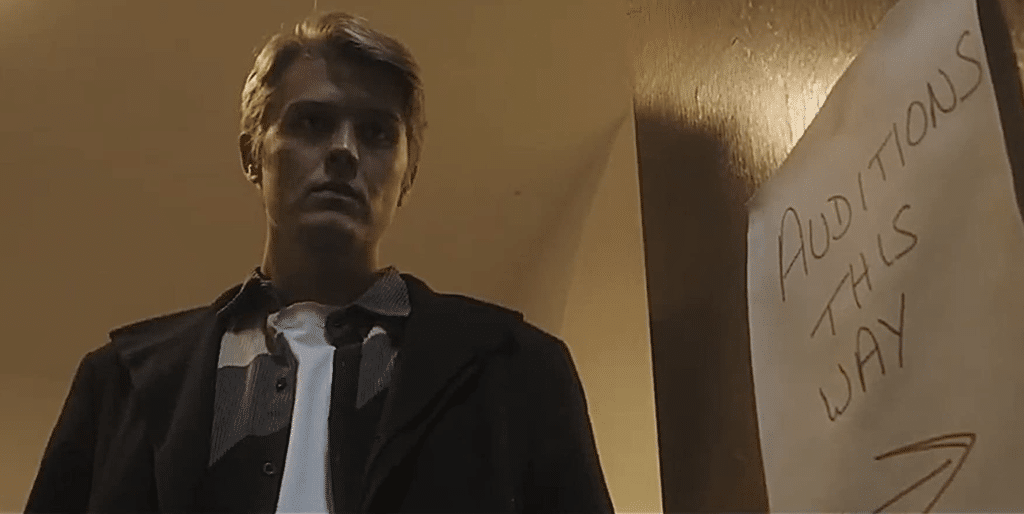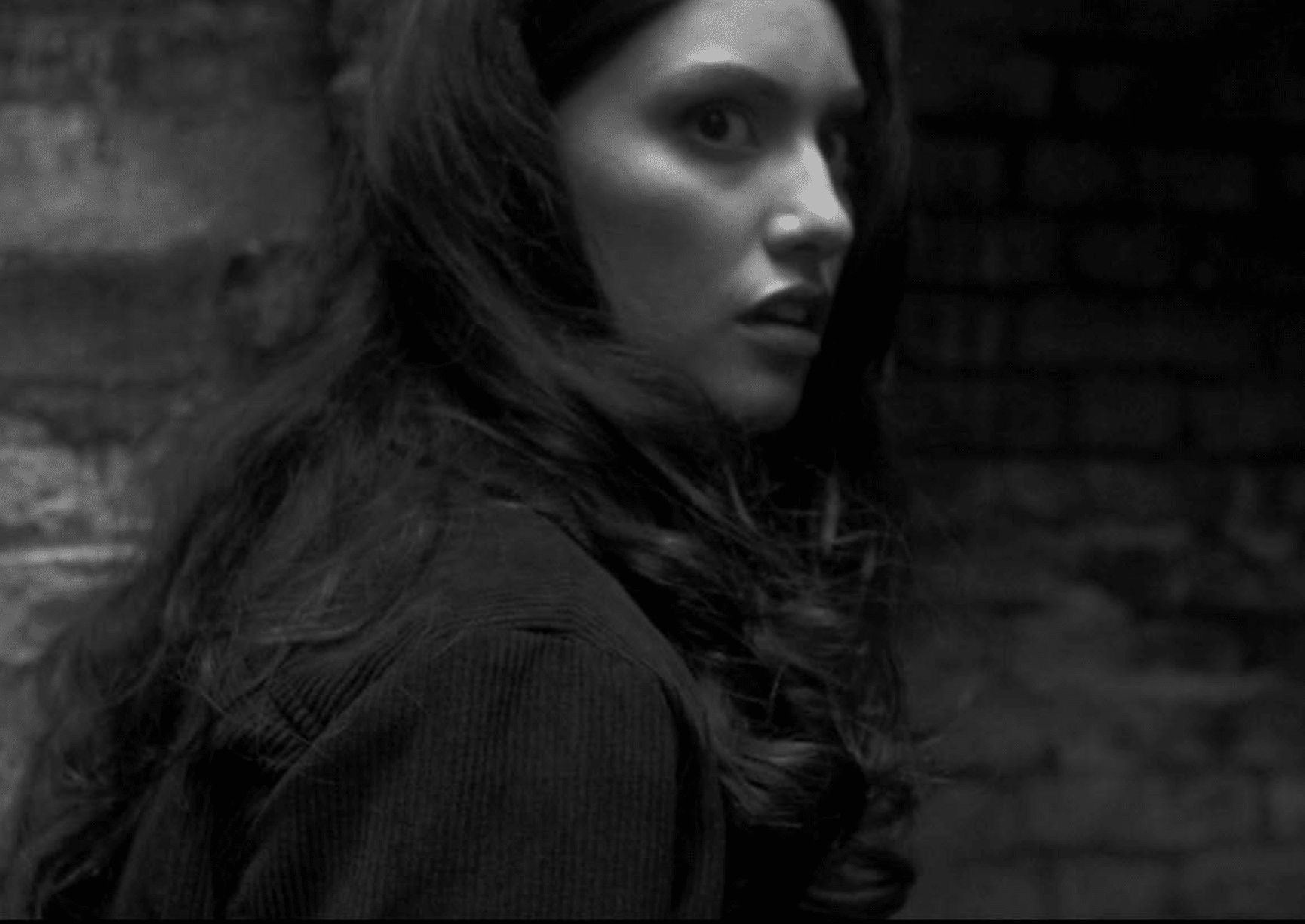
The casting call provides fertile ground for the topic of a film, particularly one looking at its pitfalls. It is, after all, a profoundly vulnerable place for actors: all that pressure, that power imbalance, and the fact that actors are often fairly itinerant, desperate to work and to get their ‘break’. From Mulholland Drive to Starry Eyes, it’s been used as an engaging setting and theme which leads us into something far, far bigger. Now there’s Casting Kill (2023), which uses that same setting to paint a picture of corruption, secret organisations and hidden identities. The casting couch is shown to be a dangerous place from almost the opening scenes; the end result is a kind of Hitchcockian vision, done on a restricted budget, but confident enough to make good use of its ideas.
We start with what seems to be a blend of know-it-all smarm and genuinely unhinged behaviour from one Arthur Capstone (Rob Laird), casting CEO of Scotsville Studios. We’ve just seen him during a rather shadowy meet-up with another man which intimates some sort of deal or arrangement, and now here we are: as he rattles through his spiel on character motivation and the process, we quickly get the idea that he isn’t all that he seems – this isn’t a regular casting situation, and he’s labouring under some very particular delusions. But then we see something a little more conventional from him, with a legit queue of people all eager to make a call-back. He treats them with a blend of hostility and disinterest, but then, when he does find someone he likes, that seems to be a distinct dose of bad luck, not a positive. There will be no call-back for his chosen actors.
The casting is not done there, however: cut to the next day, and there’s another pair of contenders: Dom (Jack Forsyth-Noble), who’s actually rather good, which seems to offend the CEO on a visceral level, and Ruby (Rachel Chima), an old friend of Dom’s. They chat outside the casting venue, and then again later, when they’ve each had their strange, discomfiting experience with Capstone – and they decide to investigate him, each in their own way.
Casting Kill loses some of its forward impetus at this point, though it is wise enough not to overstay its welcome; the running time here is a modest eighty minutes (or just shy of that). However, it is driving at something, leaving room for a decent finale and giving over some more welcome space to Xander (Ian Renshaw, who is immensely enjoyable in even this small role). Capstone himself is an interesting character too: he’s delusional and overblown, but overall, fun, even if the violence he is supposed to be capable of is largely intimated, not shown to the audience.
This fits in with the film’s deliberate channelling of Hitchcock visual tropes and, to an extent, characters: by its nature, this film is rather low key and small scale, but within its limits it has a keen eye for camerawork, very deliberately composed and framed shots and best of all, a superb score which is fully interwoven with the film, not simply overlaid. It’s a great fit and shows great attention to detail. There are some moments of cruel wit, too, which ultimately poke fun at the process of filmmaking – and all that goes along with it – from the perspective of an insider, showcasing just a little frustration with the whole thing from that point of view. Well, they do say you should talk about what you know; you have to laugh at the alleged big-time CEO of a Hollywood Studio preaching the sanctity of his profession whilst robbing cash from those auditioning, for example, but knowing how hard it is to get film projects funded, perhaps this is just a bit of verisimilitude.
There are a couple of issues – little errors, which stem from the fact that filming on this was over and done inside six days. That said, some Americanisms creeping into the very British dialect of two of the main characters is a little jarring; there’s a very noticeably breathing ‘corpse’, and do the bank notes have ‘specimen’ written on them? Things must be even tougher for actors than expected. Overall, though, despite these few rough moments, the film has enough ambition to keep things going, and even if the film doesn’t necessarily see every idea or plot device through in full, it does still come across as a wry take on the filmmaking industry which brings in some watchable, engaging ideas. It pokes fun at itself and the industry as a whole, too.
Casting Kill (2023) is available now on Amazon Prime.
